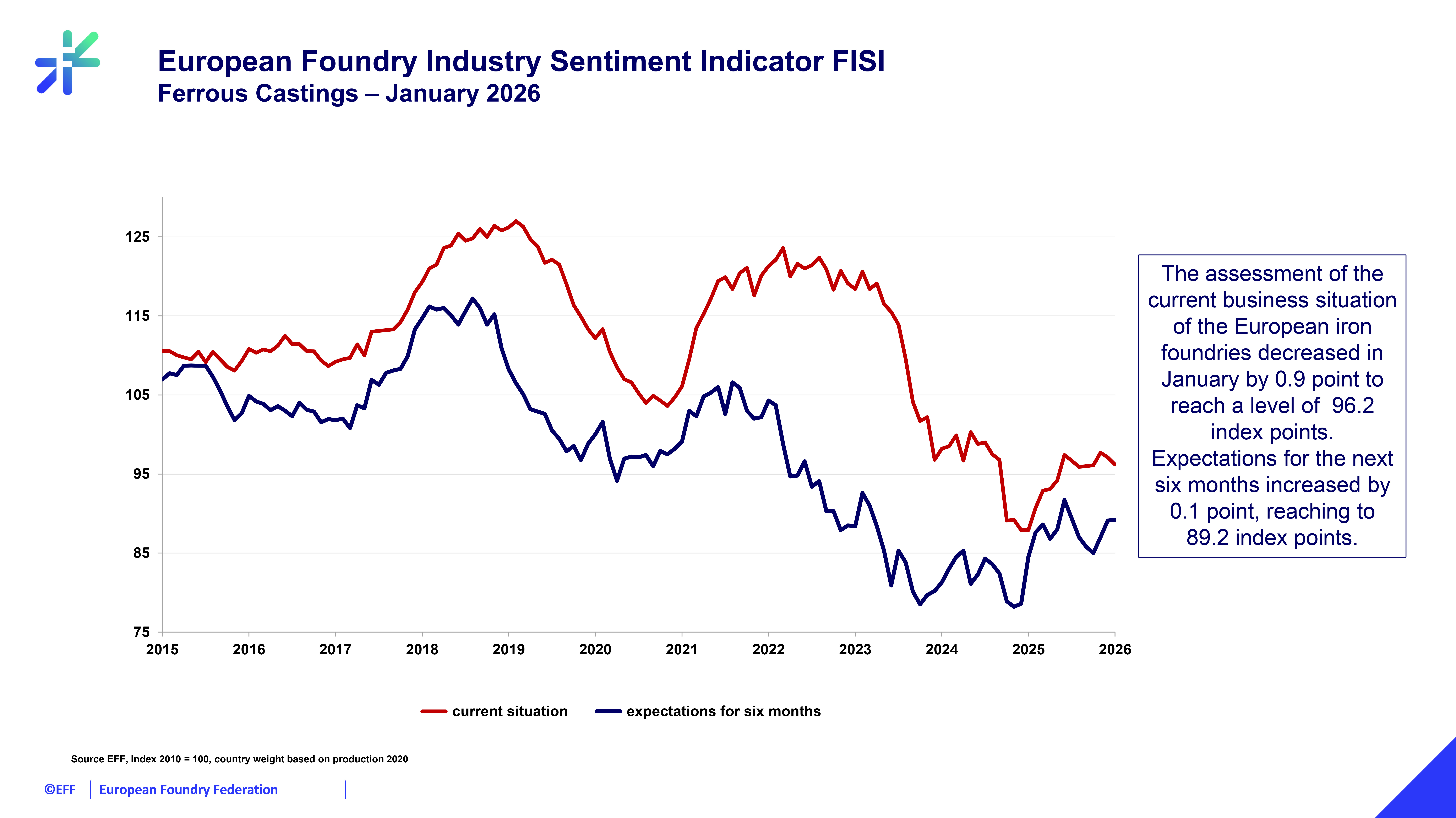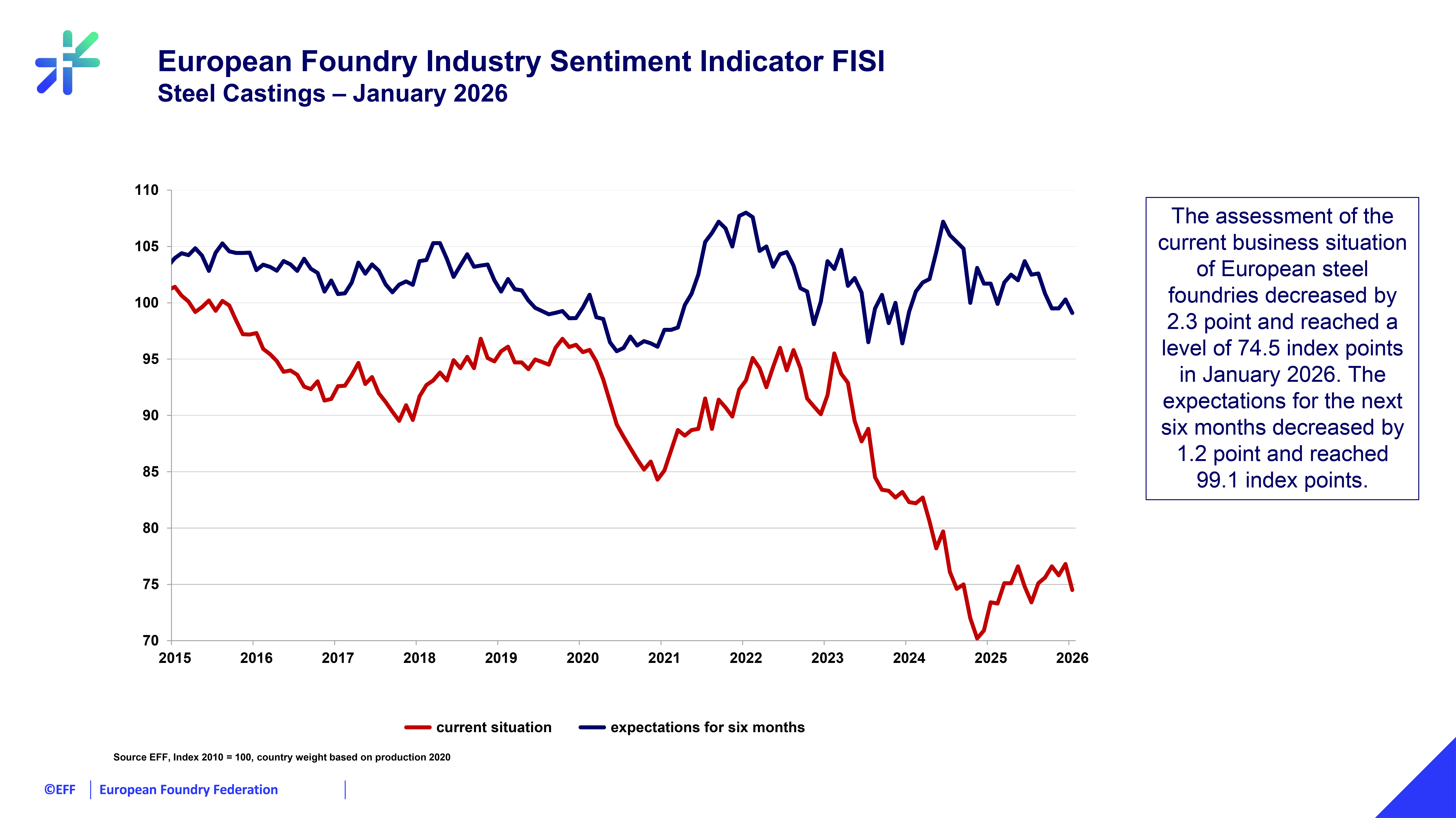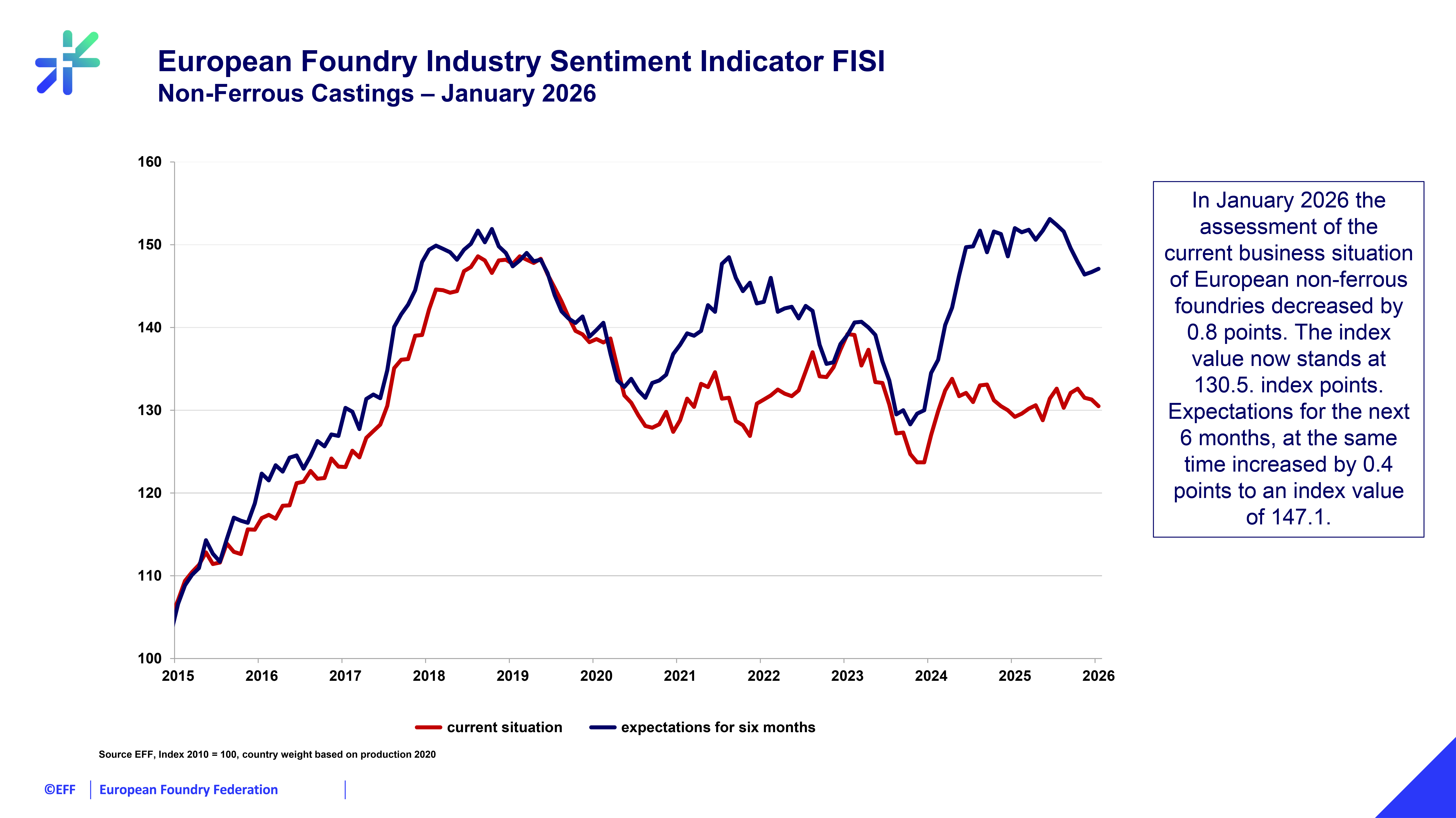L’indice FISI (Foundry Industry Sentiment Indicator) est publié chaque mois par l’association européenne de fonderie EFF à partir des réponses des organisations membres, dont pour la France, la Fédération Forge Fonderie, sur le climat des affaires dans le secteur de la fonderie (fonte, acier et non-ferreux) à date et leurs attentes pour les six prochains mois.



Télécharger les résultats de l’indice FISI de janvier 2026 ICI
L’indice FISI commence l’année 2026 en légère baisse de 0,3 point, passant de 95,8 points à 95,5 points.
La situation du secteur de la fonderie de fonte et des métaux non-ferreux sur les principaux marchés européens est similaire à celle du mois précédent, mais il convient de noter que les prévisions pour les six prochains mois, en particulier sur le marché allemand, restent relativement optimistes. La baisse de l’indice FISI en janvier 2026 s’explique principalement par le secteur de la fonderie d’acier.
L’indice BCI (*) publié par la Commission européenne remonte à -0,38 en janvier 2026 (contre -0,56 en décembre 2025).
L'indice des directeurs d'achat (PMI Purchasing Managers’ Index**) de l'industrie manufacturière de la zone euro revient à son niveau de novembre, repassant à 49,5 points en janvier 2026 (49,7 points en novembre 2025 ; 48,8 points en décembre 2025).
Source : Traduction du communiqué EFF (https://eff-eu.org/european-foundry-industry-sentiment-75/).
(*) Indice BCI : Business Climate Indicator. Indice de l’évolution du secteur manufacturier en zone euro publié par la Commission européenne à partir d’enquêtes sectorielles (tendances de la production ; carnets de commandes ; carnets de commandes à l'exportation ; stocks ; attentes en matière de production). Valeur égale à 0 : Situation neutre, ni optimisme ni pessimisme marqué.
(**) L'indice des directeurs d'achat (PMI) dans la zone euro est un indicateur de la santé économique du secteur manufacturier. Il est basé sur des indicateurs tels que les nouvelles commandes, les niveaux de stocks, la production, les livraisons des fournisseurs et l'environnement de l'emploi.



 Au sommaire de ce nouveau numéro :
Au sommaire de ce nouveau numéro :